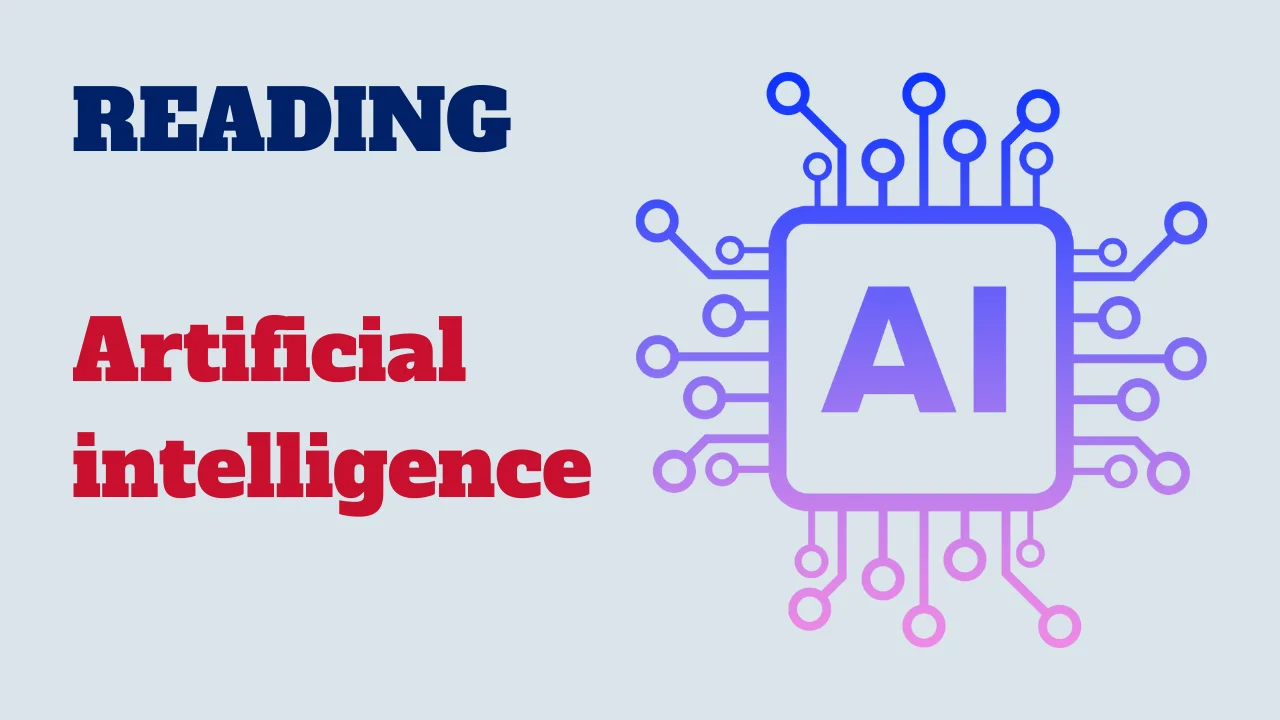Welcome to an exploration of the fascinating field of Artificial Intelligence (AI), where machines and software exhibit intelligence akin to humans. In this reading activity, we’ll examine the origins, applications, and societal impacts of AI, as well as the ethical considerations surrounding its development and use.

Prepare to discover the intricate world of intelligent machines and their growing influence on various aspects of our lives.
Text: Artificial intelligence
Artificial intelligence (AI) is a transformative field of computer science dedicated to creating systems capable of performing tasks that typically require human intelligence. These tasks include learning, reasoning, problem-solving, perception, language understanding, and interaction. AI has its roots in the mid-20th century, but recent advancements in computing power, data availability, and algorithms have dramatically accelerated its development and application.
At the core of AI are machine learning (ML) and deep learning, subsets of AI that focus on building systems that can learn from data. Machine learning involves training algorithms on large datasets to identify patterns and make predictions or decisions without explicit programming for each task. Deep learning, a subset of machine learning, uses neural networks with many layers (hence “deep”) to model complex patterns in data. This approach has been particularly successful in tasks such as image and speech recognition, natural language processing, and autonomous driving.
AI applications are vast and diverse, impacting nearly every industry. In healthcare, AI assists in diagnosing diseases, personalizing treatment plans, and accelerating drug discovery. In finance, it enhances fraud detection, automates trading, and improves customer service through chatbots. AI-driven automation in manufacturing optimizes production processes and reduces operational costs. Additionally, AI is revolutionizing customer experiences in retail through personalized recommendations and virtual assistants.
Despite its potential, AI also raises significant ethical and societal challenges. Concerns include job displacement due to automation, biases in AI algorithms that can perpetuate or amplify social inequalities, and privacy issues related to data collection and use. Ensuring transparency, fairness, and accountability in AI systems is crucial to addressing these challenges.
The future of AI holds both exciting possibilities and complex dilemmas. As AI continues to evolve, its integration into society necessitates careful consideration of its impacts on humanity. Balancing innovation with ethical considerations will be key to harnessing AI’s benefits while mitigating its risks, ensuring it serves as a tool for enhancing human capabilities and improving quality of life.
Comprehension questions
Congratulations on completing the exploration of Artificial Intelligence (AI) and its multifaceted impact on society! By delving into its origins, applications, and future implications, you’ve gained valuable insight into the dynamic world of intelligent machines and their evolving role in various aspects of our lives. As AI continues to advance, stay informed and engaged in discussions about its ethical considerations and societal impacts.



